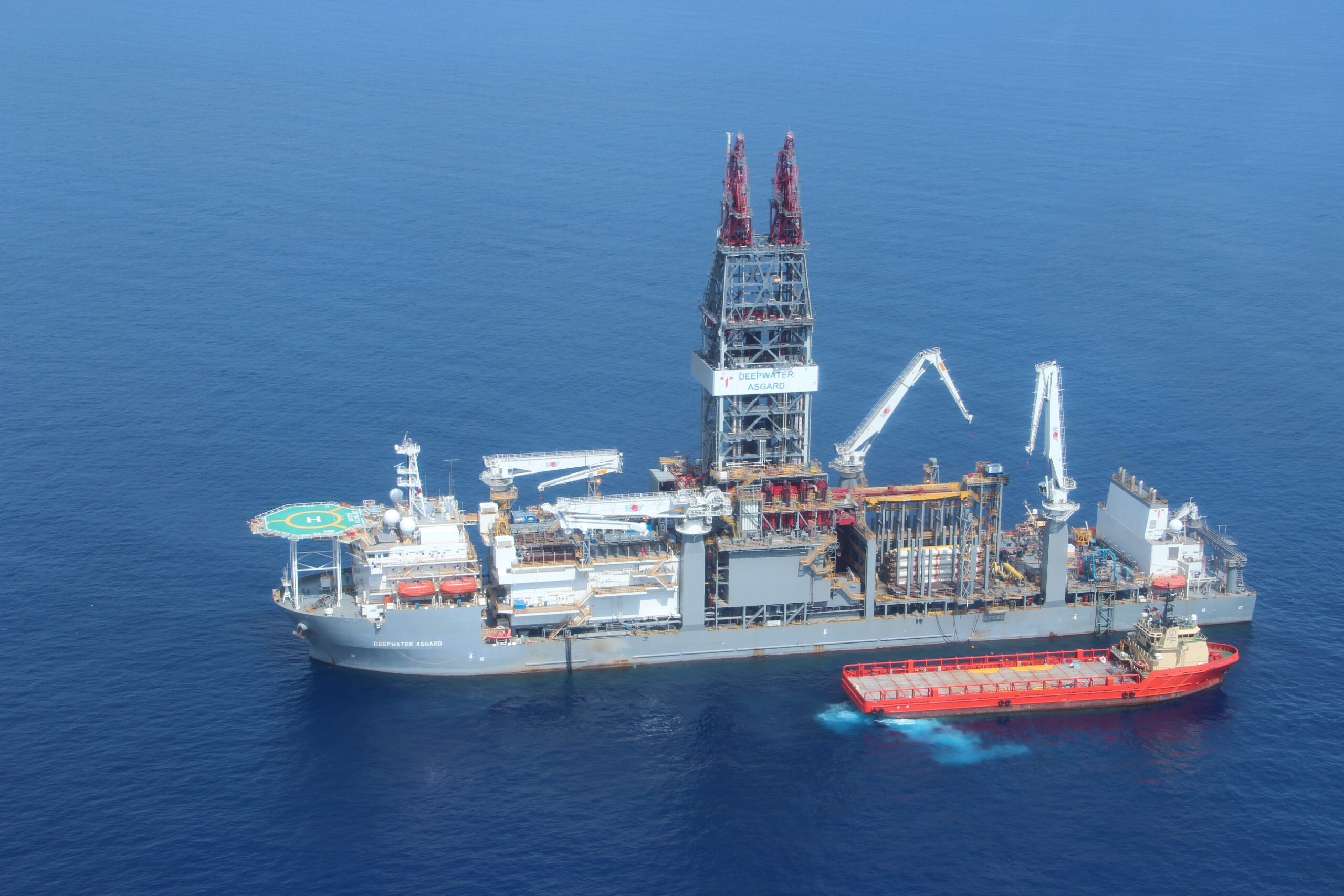Next week, two of nearly two-dozen workers who claim they received physical and psychological injuries when their employers forced them to stay aboard the Deepwater Asgard drilling rig in the Gulf of Mexico and ordered them to keep the rig operating even though it was in the direct path of Hurricane Zeta in October 2020 get to tell their harrowing stories to a Houston jury.
Twenty-three crew members of Asgard, which is about the size of NRG Stadium, filed lawsuits claiming that the decision by Transocean Offshore Drilling, Triton Voyager Asset Leasing and BOE Exploration put them in extreme danger for hours during the Category Three hurricane and caused them injuries that “left them physically and mentally unable to work offshore or lead a normal life.”
As in most personal injury and mental anguish cases, the medical doctors who examined and treated the plaintiffs are expected to take centerstage as critical witnesses about the extent of the crew members’ injuries and costs to treat them.
But lawyers for Transocean and the other defendants claim in new documents filed Sept. 5 that they have discovered a secret financial scheme involving the plaintiffs’ lawyers, their medical expert witnesses and a private equity firm that is allegedly providing funding for the litigation.
In an 18-page brief with an additional 200 pages of attachments, Transocean’s legal team claims that all the plaintiffs — “even though none had reported any injury, none had stopped working and none had sought medical attention for their alleged injuries until they received solicitation letters” from the plaintiffs’ lawyers — were channeled to two medical facilities where providers allegedly have a financial incentive in the outcome of the litigation.
Defense lawyers argue that they should be able to present evidence during the trial that any testimony from plaintiffs’ medical experts regarding their diagnosis of the workers and the medical costs is tainted evidence.
Attorneys for the 23 offshore crew members have asked a judge to rule to prohibit lawyers for Transocean and the other defendants from raising such issues during the trial because it would impinge upon the attorney-client privilege.

“As plaintiffs have pointed out multiple times, documents related to their litigation loans are not discoverable and the evidence is not admissible at trial,” lawyers for Arnold & Itkin wrote in a response brief filed Friday. “In fact, courts have held that the information Transocean seeks to enter here is not only inadmissible, it is not probative in cases like this.”
The decision over what evidence and arguments to allow or disallow at trial, which is set to start Sept. 16, will be decided over a two-day pretrial hearing scheduled for Monday and Tuesday before Harris County District Judge Rabeea Collier, who is overseeing the multidistrict litigation involving the 23 Asgard workers.
The problem for Transocean is that its case comes with past baggage: Judge Collier is already considering sanctions against Transocean’s prior legal team for allegedly paying an ex-girlfriend of one of the plaintiffs for evidence that everyone agrees was protected by the attorney-client privilege.
Transocean’s new lawyers at Ahmad Zavitsanos & Mensing argue in court documents that Transocean was completely unaware of the bad conduct by its prior counsel in the case.
The lawyers at AZA, led by John Zavitsanos, Shahmeer Halepota and Daryl Moore, argue in briefs that their new allegations of misconduct by the plaintiffs’ legal and medical experts have nothing to do with prior alleged misconduct by defense counsel.
In February 2021, attorneys for Houston-based Arnold & Itkin, a prominent plaintiff’s firm that has a lead role in high-profile litigation matters including Winter Storm Uri and Astroworld, sent letters to the 100 or so workers who were aboard Deepwater Asgard when Hurricane Zeta hit. About 20 responded and became clients of the firm.
The brief filed by AZA claims that the law firm sent all these clients to two medical providers — Elite Medical Wellness in Louisiana and Advanced Diagnostics in Texas — even though those medical providers were hundreds of miles from where their clients lived.
“Plaintiffs have orchestrated at least two cleverly designed-for-litigation billing schemes with alleged medical providers in Houston and Lake Charles,” AZA lawyers argue in their Sept. 5 brief. “These schemes are fundamentally designed to achieve two things: artificially inflate plaintiffs’ alleged medical costs (while plaintiffs themselves pay nothing); and obscure the providers’ interests and incentives by routing payments and stakes in the outcome of this litigation through middleman entities.”
Transocean’s legal team claims that the plaintiffs “secured outlandish bills, diagnoses and treatments from the interested medical providers handpicked by [Arnold & Itkin].”
The AZA lawyers argue that the plaintiffs’ motion in limine seeks to prevent the defendants “from showing the motives behind the manufactured evidence.”
“Because these funding schemes bear weight on the credibility of expected witnesses, and the reasonableness and necessity of plaintiffs’ alleged medical expenses, the evidence of these financial interests is relevant and admissible,” Transocean states in its brief. “To be clear, the above-described setup is believed to be the tip of the iceberg. Defendants have learned that CareCapital also has oral, under-the-table agreements with non-Advanced Diagnostics providers.” CareCapital is one of two entities the brief characterizes as “middleman affiliates” that “are central to the funding scheme underlying Plaintiffs’ medical claims.”
In response, lawyers for Arnold & Itkin state that “funding agreements and materials shared with a funder are not relevant and therefore not discoverable or admissible.”
“And if courts will not force litigants to turn over the documents in discovery, those same documents then should not be admitted at trial,” the firm wrote in its brief filed Friday. “All Transocean has done is offer conjecture and unsupported theories — no proof, no evidence. Accordingly, the court should not allow Transocean to argue or insinuate that plaintiffs’ bills are inflated due to some alleged scheme that Transocean cannot prove is real.”
The case is In Re Hurricane Zeta Litigation, MDL No. 22-0300.
